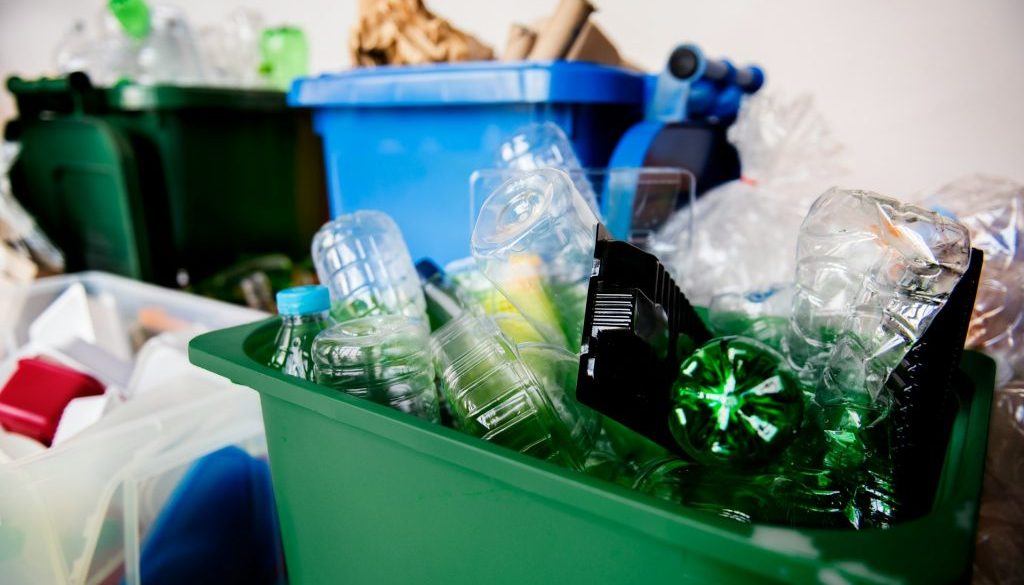Recycling has become a key part of creating a healthier environment and cutting down on waste. By recycling household items efficiently, each person can contribute positively to this cause. Small daily actions can lead to a big difference in our surroundings while making our homes more eco-friendly.
Sorting out what to recycle can sometimes be confusing, but with a bit of guidance, you’ll find it manageable and even rewarding. While many local services offer ways to handle recyclables, knowing what you can recycle and how to do it effectively is a handy skill for everyone.
Understand What Can Be Recycled
To start recycling at home, you first need to know which items can be recycled. Here are some common household items that are typically recyclable:
1. Paper: Newspapers, magazines, and envelopes.
2. Cardboard: Boxes from online shopping and cereal boxes.
3. Glass: Clean jars and bottles.
4. Plastics: Bottles like milk jugs and soda containers.
5. Metals: Aluminium cans and tin cans.
Identifying recyclable items is usually straightforward. Look for recycling symbols or check local council guidelines to confirm which materials are accepted. Remember, following local recycling rules ensures that your contributions count and aren’t wasted. By keeping informed and organised, you help ensure that recyclable materials find their way into the right streams rather than turning into more waste.
Proper Sorting Techniques
Once you’ve identified what can be recycled, the next step is sorting these items at home. Proper sorting not only makes recycling easier for waste management services but also increases the chance that items will be processed instead of discarded. Having a clearly marked bin for each category, like paper, plastics, and metals, sets up an organised system that everyone in your household can follow.
To create an effective recycling station at home, start by choosing a convenient spot near the kitchen or garage where you can have separate bins or boxes. Label each container to avoid confusion. Teach everyone at home, even kids, to rinse out food containers and remove lids before placing items in the recycling bin. This stops contamination and makes recycled material more usable.
One common mistake in sorting is mixing up plastics that are not recyclable with those that are. Also, including greasy pizza boxes with clean cardboard can spoil an entire batch. Staying informed on local rules helps avoid these mistakes. By sticking to good sorting habits, you can make a big impact with your recycling efforts.
Preparing Items For Recycling
Before you toss items into the recycling bin, certain steps can help make the process more effective. Simple tasks like removing labels and rinsing out food residue can make a critical difference in ensuring items are ready for recycling. For example, washing out milk jugs and flattening cardboard boxes save space and improve the quality of the materials collected.
Consider setting up a small rinsing area at your recycling station. A sink or even a garden hose can work well for this task. Try to make it a household habit to quickly rinse and dry recyclables before adding them to bins.
It’s also helpful to dismantle non-recyclable parts from items like toothpaste tubes or plastic lids from jars. Removing these contaminants increases the likelihood of your recyclables being actually processed and reused.
Utilising Local Recycling Services
Recycling services vary depending on your area, so understanding how to use them effectively can be a real advantage. Many local councils offer curbside collection services for sorted recyclables. Checking their schedules and acceptable materials will help ensure your items are picked up and processed correctly.
If you have a larger amount of recyclables or need specialised disposal, such as for electronics, consider services that manage larger collections. Whether you’re clearing out after a home renovation or simply have accumulated more waste than usual, local skip services can simplify your recycling routine greatly.
When hiring a service, consider your specific needs. Whether it’s a small weekend clean-up or a major house clearance, choosing the right service will save you time and hassle. A little research into the kind of skips available and their requirements will lead to a smoother experience.
Recycling Beyond the Basics
When thinking about recycling, we often focus on the usual suspects like bottles and cans, but there’s much more. Items such as electronics, batteries, and even textiles can be recycled through properly designated programs. Many communities host special days for collecting these items safely.
Getting familiar with the options available for different types of waste in your area can uncover new opportunities to recycle more than you first thought. For instance, battery recycling programmes are vital because they contain heavy metals that shouldn’t end up in landfills.
Look into local initiatives and recycling drives that accept other less common items. A bit of effort in finding these programmes can go a long way in fostering an eco-friendly lifestyle.
Making a Lasting Impact
Recycling efforts may seem small when taken individually, but combined with the actions of others, they add up to significant benefits for our environment. As you’ve read, sorting properly and preparing items for recycling are key strategies in making this possible.
These small, regular actions can bring about lasting change, not just for our homes but for the wider community. The habits you cultivate today offer great potential for a cleaner, greener tomorrow, rewarding efforts not only for you but for future generations.
To make your recycling efforts easier and more effective in Cheshire, consider working with a local service like Enviro Skip Hire. If you’re looking for a convenient way to manage household waste, using Macclesfield skip hire can help you stay organised and consistent with your sustainability goals at home.




